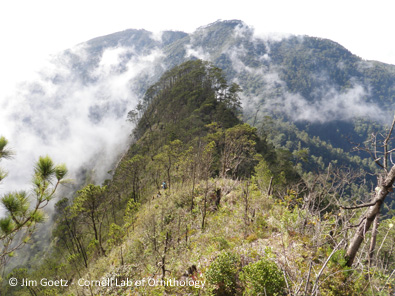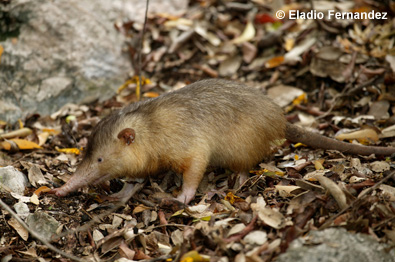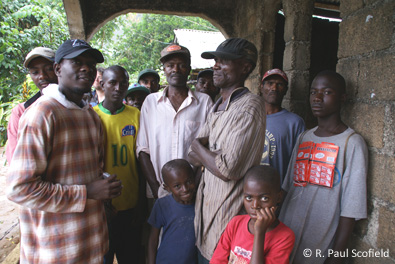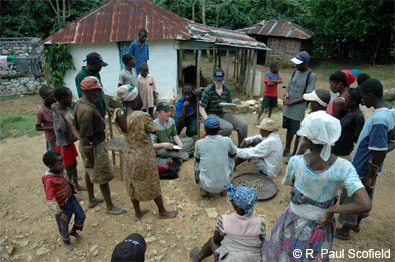A partnership of UK conservation organisations – BirdLife International, the Durrell Wildlife Conservation Trust and the Zoological Society of London’s EDGE of Existence programme – has secured funding from Defra’s Darwin Initiative in support of vital conservation action to prevent the extinction of Haiti’s unique biodiversity.
Haiti’s forests support an incredible diversity of range-restricted endemic animals, including two highly threatened land mammals and 13 EDGE Amphibians. However, only 3% of the Haitian forests remain and these are being lost at an alarming rate (approximately 10% every five years), with the result that many species are globally threatened or even possibly extinct.
The Massif de la Hotte is a mountainous area in south-westernmost Haiti, and is one of the few areas in the country still retaining a patchwork of forest cover, all within the Macaya National Park. These forests represent one of the most important places in the world for the conservation of 42 globally threatened mammals, birds, reptiles and amphibians that live there. These include the Hispaniolan solenodon, ranked 4th on the EDGE mammals list, and the most highly-ranked of the Haitian EDGE amphibians, the false green robber frog and Casillon robber frog (equal 129th), which are endemic to the Massif de la Hotte.
The forests of the Massif de la Hotte also provide important ecosystem services for local communities, including the daily provision of fresh water and firewood and protection from landslides and flooding during tropical storms. It is the maintenance and improvement of these services, and increasing the resilience of the forests to the effects of global climate change, that lie at the heart of an integrated approach to conservation in the massif.
“The last patches of forest in the mountains of southern Haiti support some of the world’s highest levels of threatened unique biodiversity, and provide invaluable ecosystem services for local communities. Without immediate conservation action and sustainable management, Haiti’s last endemic vertebrates are likely to disappear,” says ZSL’s Dr Sam Turvey, who will be coordinating the project’s mammal field surveys.
An EDGE expedition in April 2007 visited the Massif de la Hotte and confirmed the continuing survival of both the Hispaniolan solenodon and Haiti’s only surviving native rodent, the Hispaniolan hutia, although solenodons were reported to be rare by local communities. EDGE has continued supporting conservation in the region through the EDGE Fellows programme – we have trained and funded Osé Pauléus, a young Haitian keen to protect his country’s natural heritage, to continue the research carried out on the initial expedition.
The devastating 12th January 2010 earthquake had no immediate material impact within the Massif de la Hotte. However, the aftermath is starting to be felt with people fleeing Port-au-Prince to find refuge in the remote communities around the Macaya National Park. The Darwin Initiative funding comes at a critical time to help work towards accommodating earthquake victims in the communities around Macaya, and to ensure a sustainable future for people and for the area’s unique wildlife.
If you would like to contribute to the conservation of EDGE species and training of conservationists in developing countries, then please become an EDGE Champion, or donate here.




